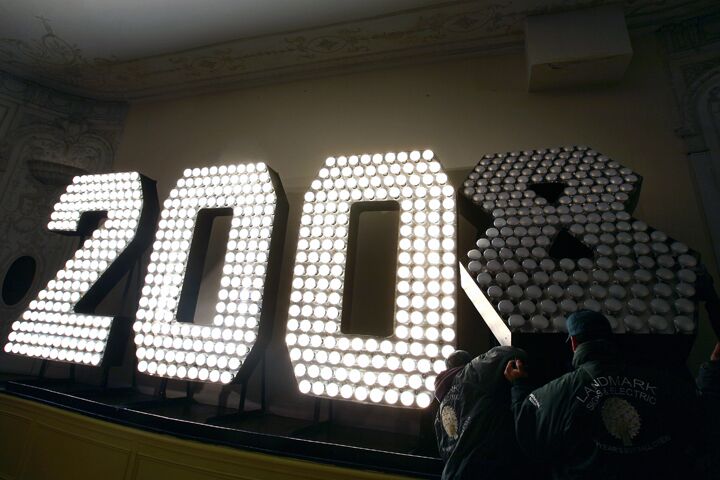After hundreds of thousands of shivering revelers have watched a ball drop down a pole in New York, millions of Americans will turn their focus to another plunging phenomenon: the U.S. economy.
Then, there will be little cause for celebration. A growing throng of experts are predicting that 2008 will be the year economic growth drops below zero and Americans ring in recession.
Forty-two tons of party hats, confetti and other trash all over Times Square could be nothing compared to the mess the average American will have to deal with.
“[A] great deal is riding on the recession odds,” Bob Lenzner writes for Forbes.com. “There’s the value of your portfolio, the cost of money, your job, the price of oil, inflation and very likely the identity of the next inhabitant of the White House.”
The Economic Cycle Research Institute (ecri) reports that 70 percent of Americans believe the country is sinking into recession.
A handful of important factors could lead to an economic slowdown or breakdown in 2008:
Energy prices continue to remain high.Volatility in the Middle East could affect economies across the globe.Food prices are soaring, doubling in many cases.The leading home price index is at a six-year record low.New home sales are at a 12-year low. “American real-estate values have already lost around $1 trillion,” Yale professor Robert Shiller, who predicted the dot-com peak, said. “That could easily increase threefold over the next few years. This is a much bigger issue than subprime. We are talking trillions of dollars’ worth of losses.”U.S. corporate profits are in recession, thanks to slower sales and higher costs. Smaller profits mean less spending and less hiring.Job figures, an important indicator, are “holding up,” but there were less than 100,000 new jobs last month. Two months in a row of below-zero job growth usually equals recession. “A lot of people believe we started a recession in December,” Hugh Johnson, chief investment officer at Johnson Illington Advisors, said. “We’ll get a good idea whether that’s true or false from the jobs data.”Another key indicator, manufacturing, surged in the summer months thanks to the plunging dollar, peaking in June. Since then, the sector has become “subdued,” according to the ecri.External factors, such as China slowing down its mushrooming economy in the coming year, could also suppress American growth. “The American and Chinese economies are now inextricably linked,” High Frequencey Economics chief economist Carl Weinberg said. “The U.S. imports a quarter of a trillion dollars’ worth of goods a year from China. … [W]e are expecting them to impose harsh measures next year to slow their economy. … A slowdown in China would have big repercussions for us. The risks could be awful.”Perhaps most importantly, consumer confidence is flagging, thanks to the disastrous subprime mortgage fiasco and the resultant drought of credit.Keep an eye out for these factors to combine for an American economic plunge, possibly in 2008. To learn what a U.S. recession means for the nation and the world, and what you can do, read “The Coming Storm,” “The Snare of Debt” and “Storm-Proof Your Financial House.”

